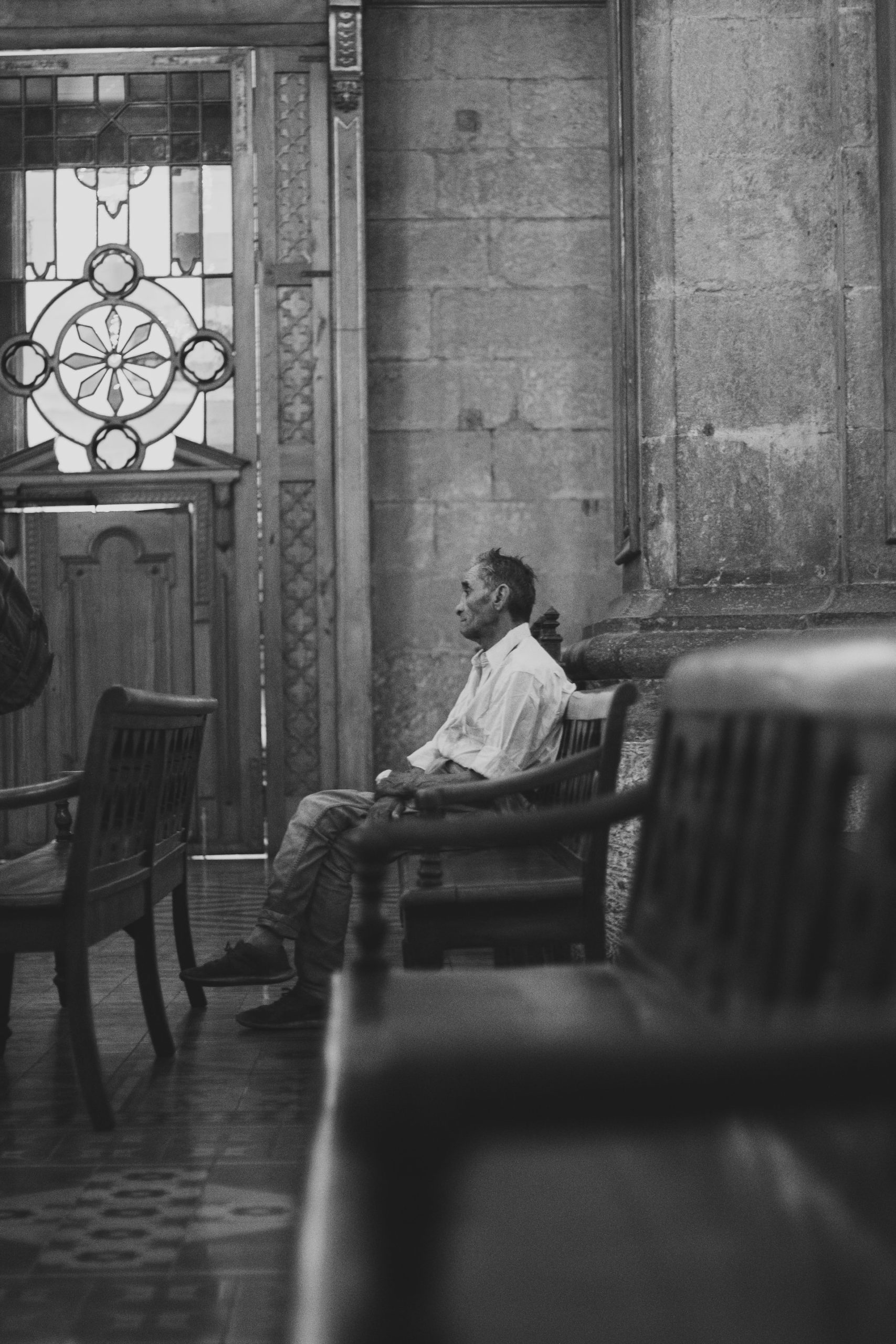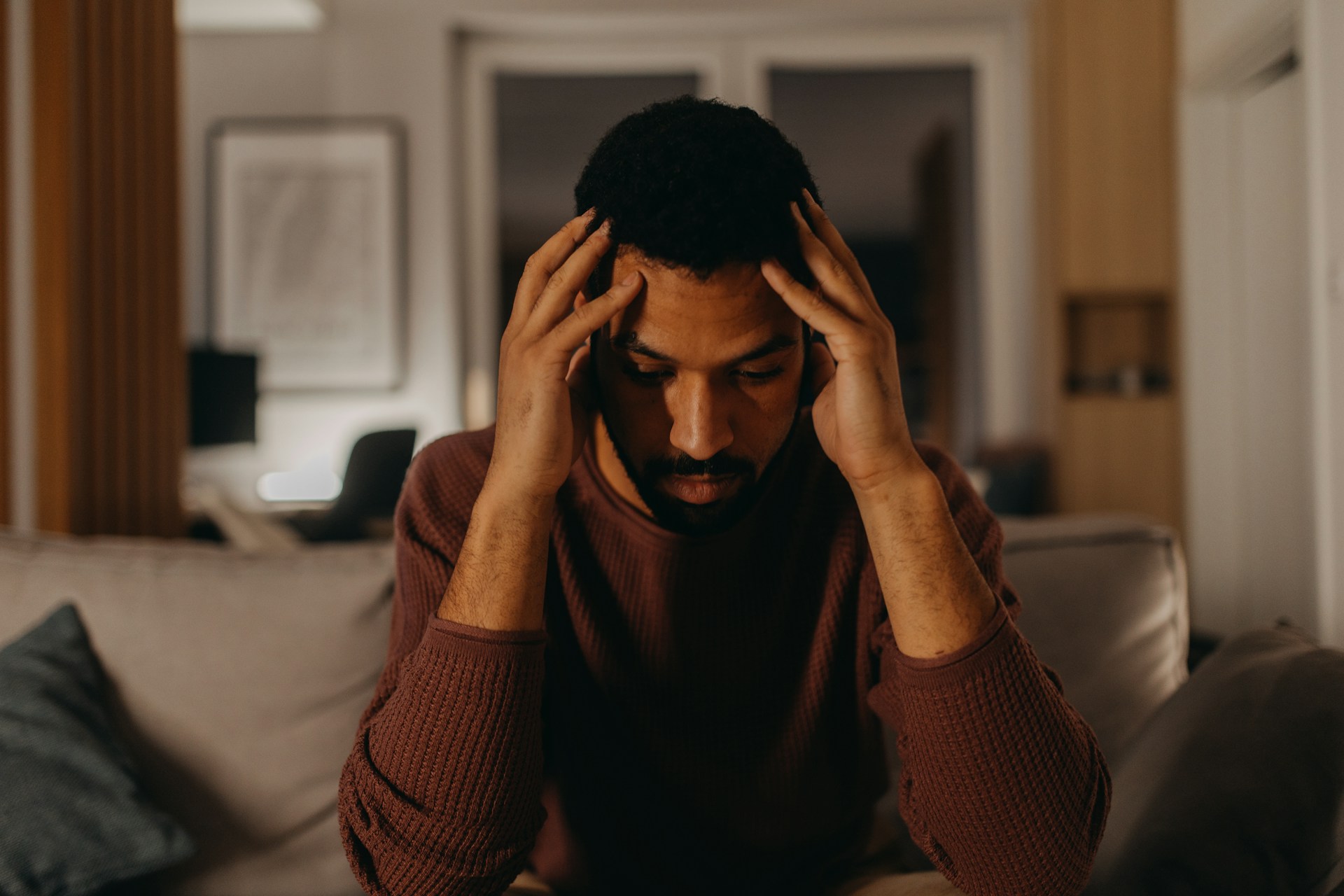Living with a partner who is addicted to alcohol or drugs is like living with a time bomb that is slowly ticking away. Because of the substance’s effects on the mind and the addictive need, one is never fully sure of what may happen as physical, emotional, and even sexual abuse may occur in the home of an addict. Irvine Christian Counseling can offer support and guidance for individuals facing such challenging situations, helping them navigate their path toward healing and safety.
Why Some Partners Avoid Treatment
 Despite knowing the dangers of being with an addicted partner, many spouses or live-in partners in codependent relationships choose not to seek professional help – for their partner or for themselves.
Despite knowing the dangers of being with an addicted partner, many spouses or live-in partners in codependent relationships choose not to seek professional help – for their partner or for themselves.
A major reason for this is denial. Almost everyone wants to believe the best of the people they love. So rather than facing the truth, they try to cover it up. They tell others that all is okay or that their partner is just going through some rough patches.
Moreover, many partners in codependent relationships believe that they can cure their addicted loved one themselves if they just act in the right way. In their eyes, if they can just be more vigilant when warning their partner about not overdoing it (e.g. – drinking excessively) or if they can somehow steer their partner away from the substance by being more loving, then there would really not be so much of a problem.
Unfortunately, many times the situation is much too difficult for them to handle, resulting in months or years of suffering; and in the really bad situations, suicide or the injury or death of others.
The Case of Codependent Relationships
The other reason why some choose or even seek such an abusive relationship is codependency. This disorder was discovered by professionals who were helping those with alcohol abuse. After much observation, they realized that the family members of the addicts were somehow slowing down the addicts’ recovery.
A separate study then began to discover how the family dynamics affected the addiction which resulted in the classification of a new disorder and the development of programs to complement addiction treatment.
What is Codependency?
As posted on the Mental Health America website:
 “Codependency is a learned behavior that can be passed down from one generation to another. It is an emotional and behavioral condition that affects an individual’s ability to have a healthy, mutually satisfying relationship. It is also known as ‘relationship addiction’ because people with codependency often form or maintain relationships that are one-sided, emotionally destructive and/or abusive.”
“Codependency is a learned behavior that can be passed down from one generation to another. It is an emotional and behavioral condition that affects an individual’s ability to have a healthy, mutually satisfying relationship. It is also known as ‘relationship addiction’ because people with codependency often form or maintain relationships that are one-sided, emotionally destructive and/or abusive.”
Basically, codependents crave emotional intimacy. They want to be needed, to be viewed as a rescuer or a hero. Because of this, they seemingly thrive in addictive codependent relationships, making it more difficult for the addict to be cured since the codependent does not see an immediate need for their loved one to be “cured.”
Codependents also consciously, or perhaps subconsciously, seek out such abusive relationships, seemingly always ending up with the “wrong person” because they seek the feeling of being important to someone.
The Vicious Cycle
 Codependency is viewed as a cycle of gratification and withdrawal similar to alcoholics or other substance abusers. A codependent seeks out intense emotional connections with their partner but then experience feelings of anxiety or desperation when their addicted partner pulls away.
Codependency is viewed as a cycle of gratification and withdrawal similar to alcoholics or other substance abusers. A codependent seeks out intense emotional connections with their partner but then experience feelings of anxiety or desperation when their addicted partner pulls away.
For addicts, they obtain their “fix” or “high” by indulging in their vice (e.g. alcohol, drugs, gambling, etc.). But once that “happy feeling” is gone, they deal with the physical and emotional aftermath. It is at this time that the codependent gets their “fix” as they get to swoop in and defuse the situation, should the aftermath be particularly troublesome (e.g. arguments or violence), and provide emotional or physical comfort.
Many researchers view codependent relationships as a dance, since two are needed to tango. This is why addicts who have codependents in their inner circle have difficulty recovering. And this is why family therapy is required for full recovery.
What Codependents Do
In the eyes of many, codependency seems very irrational. Many think, “Why would someone want to live in an abusive relationship?” Sadly, a codependent’s answer may be, “Because I feel needed.”
It is because of this mindset that addicts have a difficult time becoming better. Some of the things a codependent may do to hinder recovery include:
- Blaming others for the problem
When this is done, the addict no longer feels responsible for their addiction, acting as if they are just victims when they should be taking control of themselves.
 Covering up addictive behavior
Covering up addictive behavior
By lying to their addicted partner’s boss or telling other family members that all is okay, they allow the addict to continue on with their addiction in the hope that nobody will interfere.
- Lending the addict money
This is basically a direct way of saying, “It is okay to get drunk or get high.” Sometimes the partner even does the purchasing for their addicted loved one. In other scenarios, the partner allows the addicted one not just to use drugs, but even to sell them.
A Codependent Needs Help
Because of this desire to be needed, codependents rarely overcome their situation on their own. Outside help is required for them to fully understand their negative situation.
In therapy for codependent relationships, the goal is for the codependent to become stronger internally so that they can break the desire for an abusive relationship. If not, they will continually seek such relationships. Hence, improving self-confidence and self-esteem are very important along with better decision-making.
For those dealing with high levels of anxiety, trauma, or depression, steps are taken to heal their hurt so they can function normally at work and home.
And of course, codependents are informed of how their actions are adversely affecting the recovery of their addicted loved one. If their love is true, they will finally understand that what they are doing is prolonging the hurt that the addicted loved one is going through.
Loving someone who is addicted is a challenging situation indeed. But such stories do not have to have an unhappy ending. The addicted loved one can be cured if help is given quickly and if the codependent partner also chooses to get help as well.
If you or someone you know is currently in such a vicious cycle of hurt and need, seek help soon. This is not something that will quickly disappear on its own. Professional help is usually required in order for change to happen. Irvine Christian Counseling is here to provide the support and resources needed to break the cycle and promote healing.
“Face-off”, Courtesy of Silvia and Frank, Pixabay.com; CC0 License; “Smoker”, Courtesy of Mateo Avila, Unsplash.com; CC0 License; “Together,” courtesy of Timothy Paul Smith, unsplash.com, CC0 License; “Waterfall,” courtesy of Chloe Smith, magdeleine.co, CC0 Public Domain License
-
Kate Motaung: Curator
Kate Motaung is the Senior Writer, Editor, and Content Manager for a multi-state company. She is the author of several books including Letters to Grief, 101 Prayers for Comfort in Difficult Times, and A Place to Land: A Story of Longing and Belonging...
DISCLAIMER: THIS ARTICLE DOES NOT PROVIDE MEDICAL ADVICE
Articles are intended for informational purposes only and do not constitute medical advice; the Content is not intended to be a substitute for professional medical advice, diagnosis, or treatment. All opinions expressed by authors and quoted sources are their own and do not necessarily reflect the opinions of the editors, publishers or editorial boards of Irvine Christian Counseling. This website does not recommend or endorse any specific tests, physicians, products, procedures, opinions, or other information that may be mentioned on the Site. Reliance on any information provided by this website is solely at your own risk.





